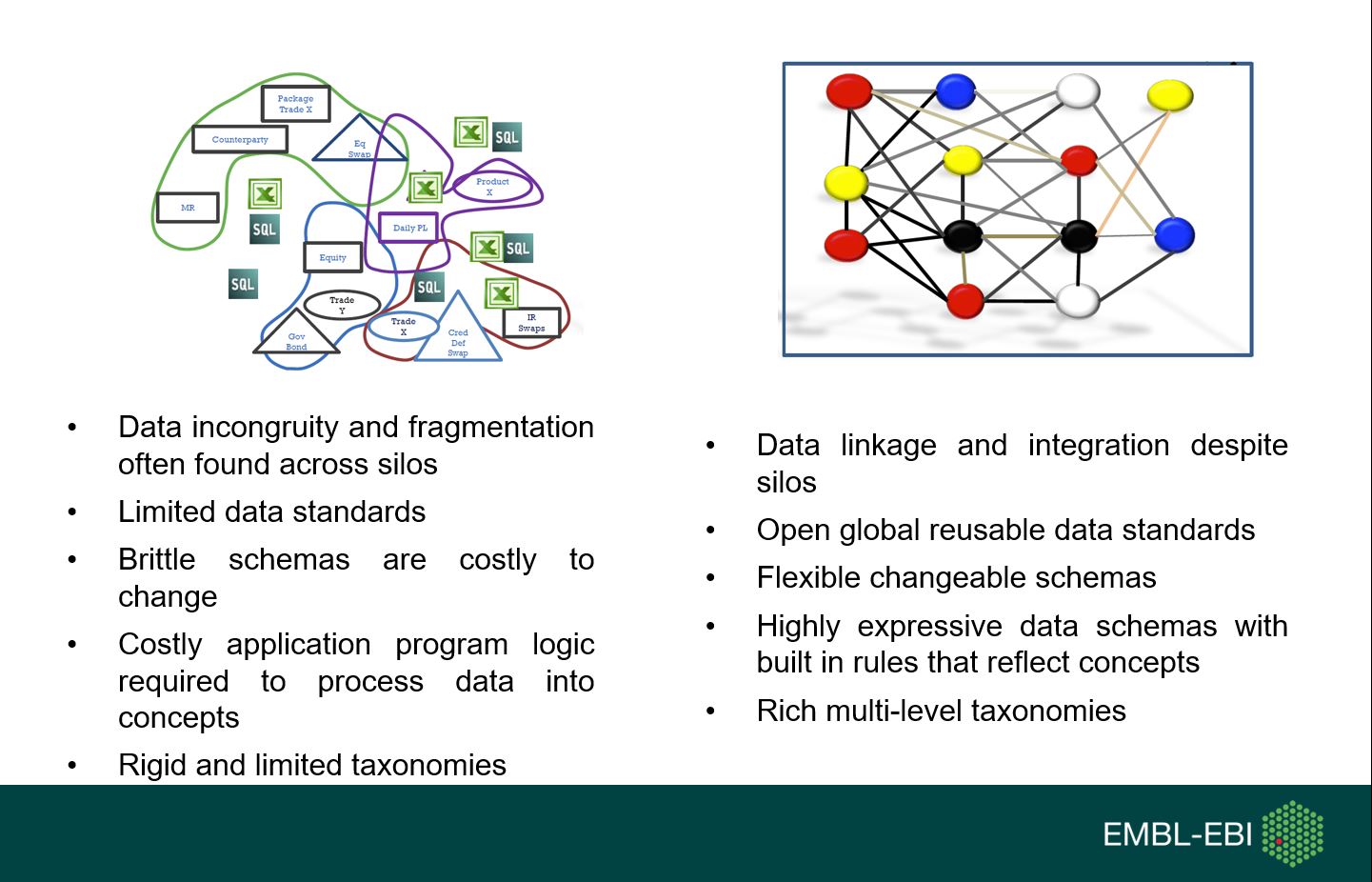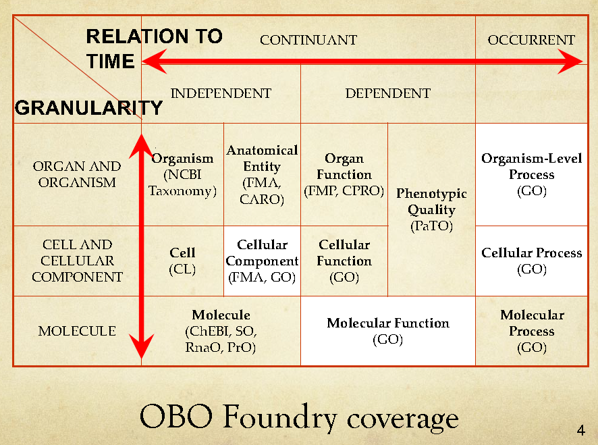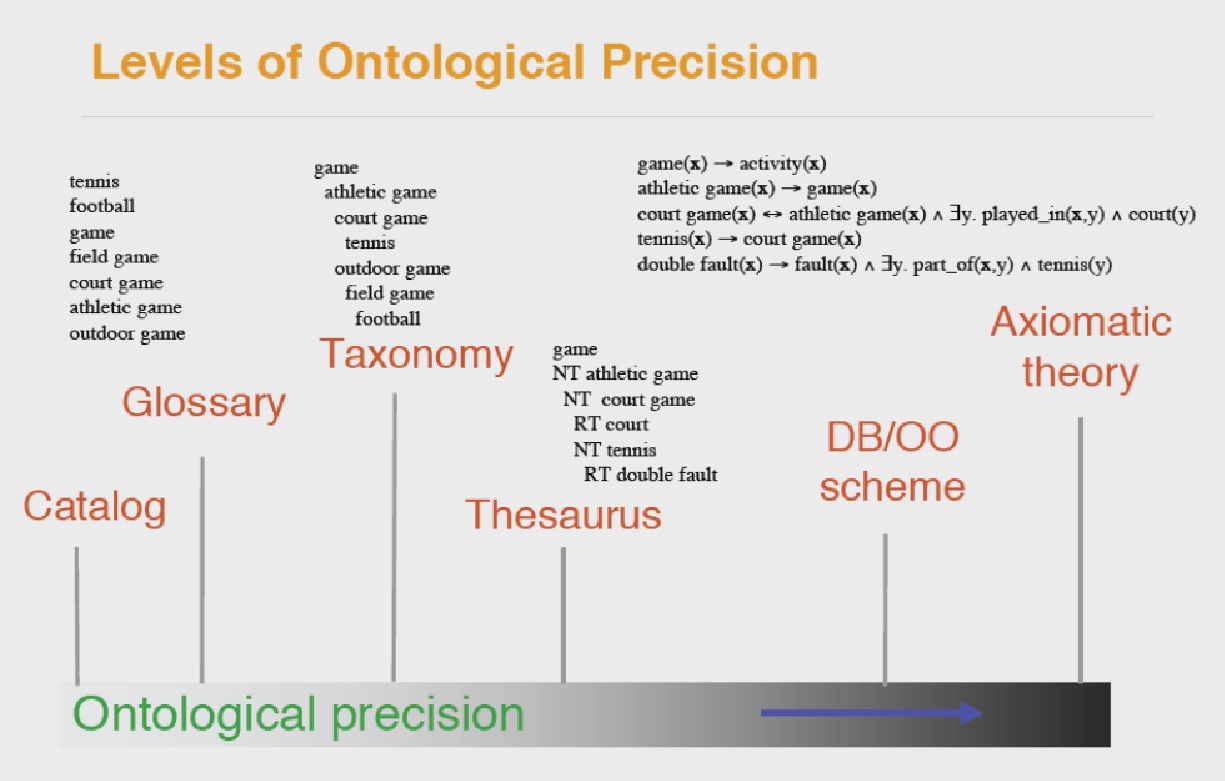Glossary, Dictionary, Taxonomy, Ontology?
Semantic annotation is everywhere and got another push by the FAIR principles. An ontology covering the full nanosafety/nanoinformations domain might be the most appealing to not only annotate the data but also be able to reason on its basis.
However, the road to this is long and to be successful, changes in mentality and a lot of training will be needed. Therefore, it is important to understand, what is actually needed for each task and what can already be done today. Here, we will provide some external resources separating the different terms in the ontology world and what are the skills needed to build an ontology. Resources specifically for the nano terminology / ontology development are presented in a separate page.
Why do we need semantics?
 Jiakang Chang, The eNanoMapper ontology, 8 June 2016
Jiakang Chang, The eNanoMapper ontology, 8 June 2016
What is an ontology?
- An ontology is a data model that represents a domain and is used to reason about the objects in that domain and the relations between them.
- An ontology is a (partial) specification of a shared conceptualization, i.e., it is usually a logical theory that expresses the conceptualization explicitly in some language. A conceptualization can be defined as an intensional semantic structure that encodes implicit knowledge constraining the structure of a piece of a domain.
 The use of ontologies began in the biological sciences around 1998 with the development of the Gene Ontology (GO). By 2007, there was sufficient interest and activity in the area to merit national and international coordination efforts such as the Open Biomedical Ontologies (OBO) Foundry or the National Center for Biomedical Ontologies
The use of ontologies began in the biological sciences around 1998 with the development of the Gene Ontology (GO). By 2007, there was sufficient interest and activity in the area to merit national and international coordination efforts such as the Open Biomedical Ontologies (OBO) Foundry or the National Center for Biomedical Ontologies
The backbone of ontology is often a taxonomy. Taxonomy is a classification of things in a hierarchical form. It is usually a tree or a lattice that expresses subsumption relation - i.e., A subsumes B meaning that everything that is in A is also in B. An example is classification of living organisms. In general, there is a hierarchy of ontological precision and organisation allowing more and more automatic reasoning.
 Guarino, Nicola. 2006. “Ontology and Terminology: how can formal ontology help concept modeling and terminology?” in EAFTNordTerm on Terminology, Concept Modeling and Ontology, Vaasa, February 10th, 2006, slide no 13.
Guarino, Nicola. 2006. “Ontology and Terminology: how can formal ontology help concept modeling and terminology?” in EAFTNordTerm on Terminology, Concept Modeling and Ontology, Vaasa, February 10th, 2006, slide no 13.
ISKO Encyclopedia of Knowledge Organization Nice summary of all the possible visualisations of this ontological precision hierarchy and much more.
What’s the Difference: Glossary, Dictionary, Taxonomy, Ontology? A personal set of definitions and why we do need all of them by The Data Maven
And how to develop them?
There are many tutorial on how to develop an ontology and you probably need to find your perferred one yourself:
Anyway, some things to start with:
Ontology Development 101: A Guide to Creating Your First Ontology